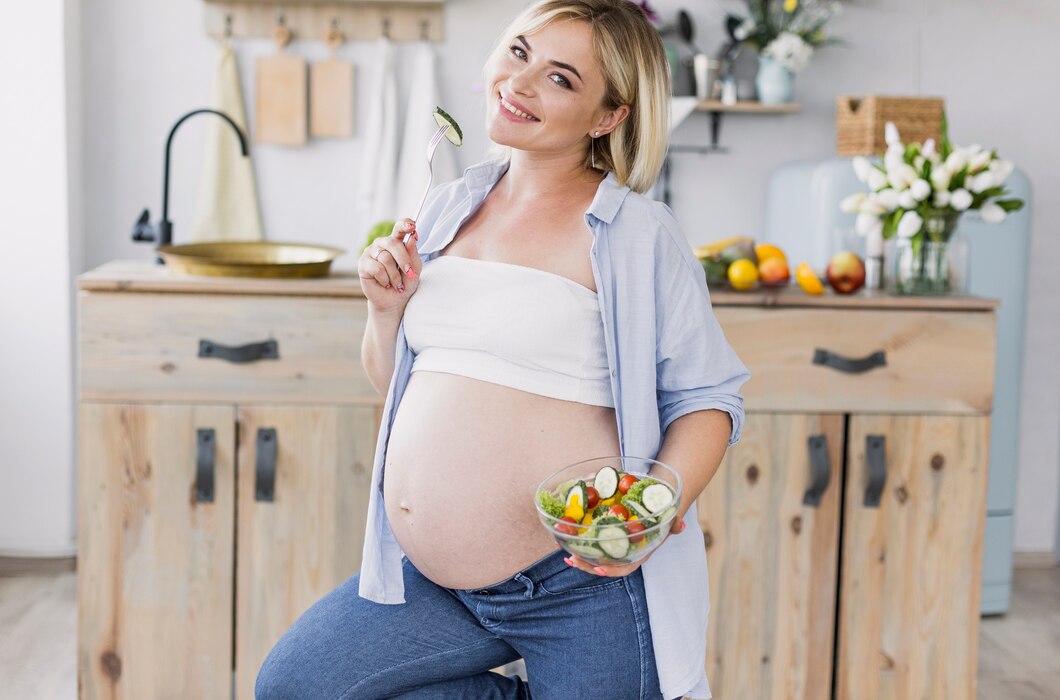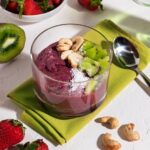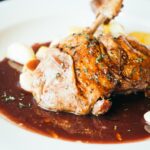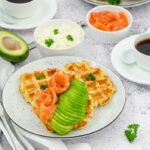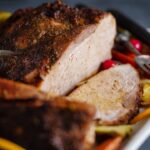Pregnancy is a critical period that demands careful attention to diet and nutrition to ensure the health and well-being of both the mother and the developing baby. Certain foods, while popular and enjoyed regularly, may pose risks during pregnancy due to potential contaminants, bacteria, or toxins. Here are 20 foods that South African women should avoid during pregnancy.
1. Raw or Undercooked Meat
Raw or undercooked meats, such as rare steak or undercooked game meat, can harbor harmful bacteria like E. coli, Salmonella, and Toxoplasma gondii. These pathogens can lead to severe foodborne illnesses that may harm both mother and baby.
2. Deli Meats
Deli meats, including ham, salami, and biltong, can be contaminated with Listeria, a bacteria that can cross the placenta and cause severe infections in the baby, potentially leading to miscarriage or stillbirth.
3. Unpasteurized Dairy Products
Milk, cheese, and other dairy products that have not been pasteurized can contain Listeria and other harmful bacteria. It’s best to stick with pasteurized options during pregnancy.
4. Soft Cheeses
Soft cheeses such as Brie, Camembert, and blue-veined cheeses may contain Listeria. These cheeses are often made from unpasteurized milk and should be avoided unless the label clearly states they are pasteurized.
5. Raw Eggs
Raw or partially cooked eggs, including those found in homemade mayonnaise, Caesar dressing, and certain desserts like mousse, can be contaminated with Salmonella. Ensure eggs are thoroughly cooked before consumption.
6. Certain Fish
Avoid high-mercury fish like shark, swordfish, king mackerel, and tilefish, as mercury can impair the baby’s developing nervous system. Also, be cautious with locally caught fish from potentially polluted waters.
7. Raw Shellfish
Raw oysters, clams, and mussels can contain harmful bacteria and viruses. It’s safer to consume these shellfish fully cooked to reduce the risk of infection.
8. Smoked Seafood
Smoked seafood, often found in the form of refrigerated smoked fish like smoked salmon, can harbor Listeria. It’s safer to eat canned or shelf-stable smoked seafood during pregnancy.
9. Certain Game Meats
Wild game meats can contain harmful bacteria or parasites. Ensure these meats are thoroughly cooked if you choose to consume them.
10. Unwashed Fruits and Vegetables
Fruits and vegetables can be contaminated with Toxoplasma, E. coli, or Listeria. Always wash produce thoroughly before eating, and peel or cook when possible.
11. Sprouts
Raw sprouts, such as alfalfa, mung bean, and radish sprouts, can harbor bacteria like Salmonella and E. coli. It’s best to avoid raw sprouts altogether during pregnancy.
12. Alcohol
No amount of alcohol is considered safe during pregnancy. Drinking alcohol can lead to fetal alcohol syndrome and other developmental disorders.
13. Caffeine
High caffeine intake is linked to increased risk of miscarriage and low birth weight. Limit caffeine consumption to less than 200 milligrams per day (about one 12-ounce cup of coffee).
14. Liver
Liver and liver products can contain high levels of vitamin A, which can be harmful to the developing baby. It’s best to avoid consuming liver during pregnancy.
15. Pâté
Both meat and vegetable pâtés can contain Listeria. It’s safer to avoid these spreads during pregnancy.
16. Pre-Packaged Salads
Pre-packaged salads, especially those containing ingredients like deli meats or seafood, can harbor bacteria. Prepare fresh salads at home to ensure safety.
17. Leftover and Buffet Foods
Leftover foods and buffet items can harbor bacteria if not stored or reheated properly. It’s best to consume freshly prepared foods and ensure leftovers are heated thoroughly.
18. Raw Dough or Batter
Raw dough or batter can contain raw eggs and flour, which might be contaminated with Salmonella or E. coli. Avoid tasting or eating raw dough or batter.
19. Herbal Teas and Supplements
Certain herbal teas and supplements can have adverse effects on pregnancy. Always consult with a healthcare provider before consuming any herbal products.
20. Junk Food
High-fat, high-sugar, and heavily processed junk foods provide little nutritional value and can contribute to excessive weight gain and gestational diabetes. Focus on a balanced diet rich in whole foods.
Maintaining a healthy diet during pregnancy is essential for the well-being of both mother and baby. By avoiding these potentially harmful foods, South African women can help ensure a safer and healthier pregnancy. Always consult with a healthcare provider for personalized dietary advice and recommendations.
